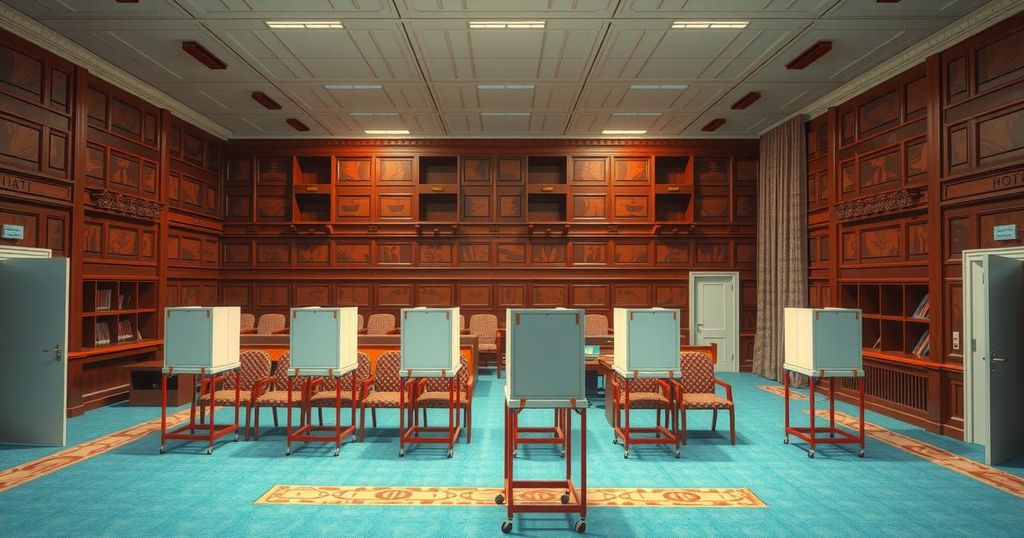Chad’s Parliamentary Election Witnesses Low Turnout Amid Opposition Boycott

Chad held parliamentary elections on Sunday with low voter turnout primarily due to an opposition boycott. The elections conclude a three-year military transition under Mahamat Idriss Deby, following a disputed presidential vote. Concerns regarding electoral credibility surfaced amidst calls from opposition leaders urging non-participation, leading to a skepticism around the elections’ legitimacy.
Chadians participated in parliamentary elections on Sunday amidst a notably low voter turnout, primarily due to a boycott from major opposition parties. These elections mark the conclusion of a three-year military transition, following the controversial leadership of Mahamat Idriss Deby, who ascended to power after the death of his father. The vote is deemed significant as it positions itself as the first step towards decentralization and a promised return to democracy, despite widespread accusations of an unreliable electoral process.
Official results will not be disclosed for approximately two weeks, but voter engagement appeared minimal in many regions, including the capital, N’Djamena. The transitional government has faced criticism, with prominent opposition parties terming the electoral process a mere guise to maintain military governance. Following the presidential elections held earlier in the year, where Deby was declared the victor, this election serves to elect 188 members for the new National Assembly.
Currently, Chad stands at a pivotal juncture, grappling with extensive security challenges and recovering from a legacy of military rule since its independence in 1960. The participation of over 10 opposition parties, including the significant Transformers party led by Succes Masra, has been notably absent amid claims of electoral manipulation and calls from opposition leaders urging voters to remain home rather than partake in what they consider farcical elections. Political analysts assert that the critical concern lies in preserving democratic transitions rather than extending military oversight, indicating a climate of skepticism surrounding the electoral process. Additionally, Chad’s strategic relation with France, its foremost ally, is increasingly in question amid heightened security agitations from groups like Boko Haram.
This election is critical for Chad as it embarks on a transition from military rule that has lasted for over three years. Following the passing of long-standing president Idriss Deby Itno in 2021, his son Mahamat Idriss Deby took control amid promises of returning to democratic governance. However, the return to democracy has been marred by controversies surrounding the transparency and credibility of both presidential and parliamentary elections. The lack of opposition participation highlights significant concerns about the legitimacy of this democratic process and raises questions about the future of governance in Chad.
In summary, the parliamentary elections in Chad represent a crucial attempt to transition away from military rule; however, low voter turnout and a boycott from major opposition parties cast doubt on the credibility of the process. The elections signify a potential step towards decentralization and democracy but are overshadowed by allegations of electoral manipulation and a lack of genuine competition. As the nation grapples with security challenges and a turbulent political landscape, the outcome of these elections could shape Chad’s path forward.
Original Source: apnews.com






